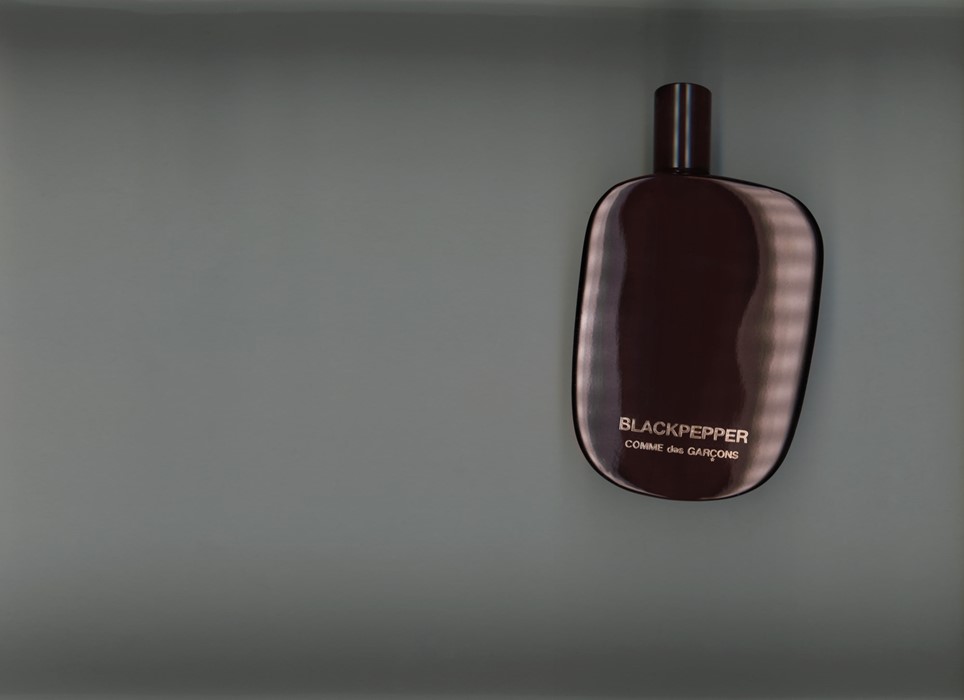We premiere a short film by artist Katerina Jebb in celebration of the new fragrance by Comme des Garçons: BLACKPEPPER
As with everything they do, Comme des Garçons have a singular approach to creating perfume: it is without the commercial confines of ordinary fashion fragrances. “Our customer is the same kind of person who would buy a dress or jacket from Comme des Garçons,” says Christian Astuguevieille, who has been the creative director of the maison’s parfums since their inception in 1994. “Their age, their sex, is not our business; our world is more free.” The philosophies that guide Comme's fragrances stand in opposition to industry convention – simply, subjects that inspire and excite Astuguevielle – and so do their technical methods: formulas are shorter, ingredients fewer, the fragrances stay true to their original scent rather than dissolving into oblivion. Their newest creation, BLACKPEPPER, is a true reflection of such determined creativity, an incendiary investigation into the purest form of the Madagascan black pepper seed and a restoration of the exotic opulence once affiliated with the spice. There is no gourmand base note, no homogeneity on the dry down: it is endlessly enigmatic and consistently compelling. As they say, it is “spice, seen through the transformative lens of Comme des Garçons.”

Considering Comme's dedication to subversion, it makes perfect sense that they have engaged artist Katerina Jebb to create the filmic collaboration that accompanies BLACKPEPPER. Not only has she worked with the house previously, but her avant-garde approach to her work bears a striking parallel to that of Comme des Garçons: she exists determinedly outside of the mechanisms of the arts industry, retains her status as an "underground artist" in spite of her renown. To celebrate BLACKPEPPER, Jebb has created an abstract study which sits distinctly apart from the traditional advertising tropes that fragrance embraces all too often, instead choosing to present a meditative moment of contemplation and the opportunity for the imaginative freedom that a good fragrance can afford.
It is this Proustian power that Jebb is enchanted by, and fragrance's evaporation of ordinary modes of communication; when we apply perfume “we are spraying an emotional phenomena onto our skin which permeates beyond language,” she says. But while BLACKPEPPER is an investigation into the darkest depths and the opulence of black pepper seeds, Jebb’s film is an exploration of natural light. “I use light to tranquilise the eye,” she explains, “darkness is the exclusion of light, an invisible force, and perfume can also be considered an invisible force.” In a world where we are bombarded with endless streams of disposable imagery and artificial advertising, where chaos reigns and consumption rules, the film is nothing short of a delight to behold: a moment of natural escapism, reminding us that beauty is truth, and truth beauty.




